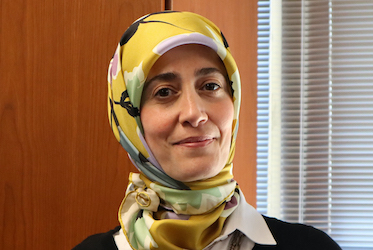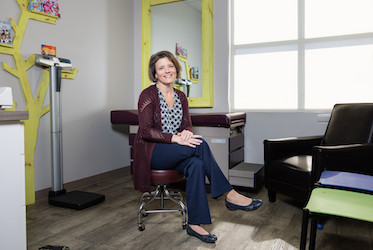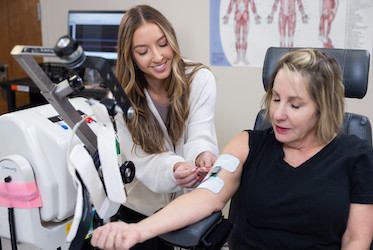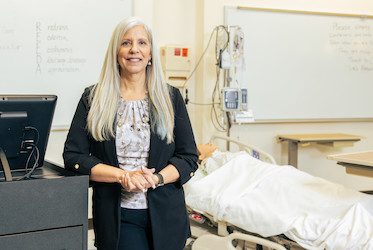
Nursing Professor Studies Stress, Anxiety and Trauma of Surgery
KENNESAW, Ga. | Jun 30, 2020

Doreen Wagner has more than 35 years of experience in the health care field, ranging from perioperative staff nurse to patient safety system coordinator in the acute care setting. Now as professor of nursing in KSU’s Wellstar School of Nursing, she is most interested in researching the science of nursing.
“Furthering my education opened my mind to all that nurses can do – and it is a lot more than many nurses even recognize,” she said. “But at the top of my concerns are patient safety and keeping the patient as the primary focus in the delivery of nursing care.”
With that in mind, Wagner has been conducting research on the relationship between perioperative care and patient outcomes as related to the consequences of stress and anxiety caused by the trauma of surgery. Perioperative care refers to the care provided before and after surgery, the critical time to prepare patients both physically and psychologically.
“My research expertise is in the quantitative study of perioperative temperature regulation and the issues related to stress in the interactions between psychological processes and the nervous and immune systems,” she explained. “I also look at physiological biomarkers, such as the levels of cortisol, a hormone usually released into the bloodstream at times of stress to help our bodies respond to stress and danger.”
According to Wagner, post-operative delirium (confusion) is the most common post-operative complication in older adults, affecting up to 72 percent of surgical patients. Unplanned perioperative hypothermia, an unexpected core temperature decrease, is a common surgical complication that has been reported as a trigger for post-operative delirium.
Wagner’s recent study has illustrated for the first time the relationship between the two phenomena among adults undergoing non-cardiac surgery. She pointed out that since anesthesia and infections can cause delirium, especially in patients with higher risk factors, and certain types of anesthesia make delirium worse, it is important to conduct assessments.
Her research also reflects the University’s yearlong strategic planning initiative in which the Office of Research collaborated with faculty and University leaders to determine the next steps in shaping KSU’s research vision and goals for the future. As part of this initiative, four signature themes evolved centered intentionally under a broad umbrella of “Research with Relevance.” Through this, colleges and units can develop their own strategic niches as well as opportunities for cross-disciplinary exploration.
KSU scholars like Wagner often focus their efforts within one of the four interdisciplinary research themes: Biomedical and Health Services, Computing and Technology, Human Development and Well-Being, and Sustainable and Safe Communities.
– Emily Berreth
Photos by Jason Getz
Related Stories
A leader in innovative teaching and learning, Kennesaw State University offers undergraduate, graduate and doctoral degrees to its more than 45,000 students. Kennesaw State is a member of the University System of Georgia with 11 academic colleges. The university’s vibrant campus culture, diverse population, strong global ties and entrepreneurial spirit draw students from throughout the country and the world. Kennesaw State is a Carnegie-designated doctoral research institution (R2), placing it among an elite group of only 7 percent of U.S. colleges and universities with an R1 or R2 status. For more information, visit kennesaw.edu.




















